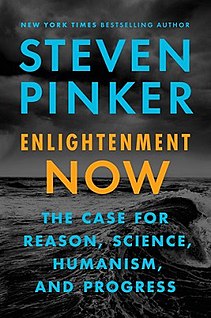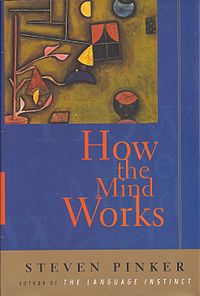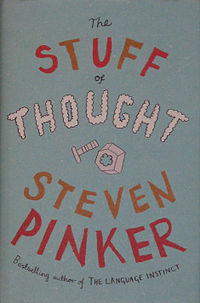 W
WThe Better Angels of Our Nature: Why Violence Has Declined is a 2011 book by Steven Pinker, in which the author argues that violence in the world has declined both in the long run and in the short run and suggests explanations as to why this has occurred. The book uses data simply documenting declining violence across time and geography. This paints a picture of massive declines in violence of all forms, from war, to improved treatment of children. He highlights the role of nation-state monopolies on force, of commerce, of increased literacy and communication, as well as a rise in a rational problem-solving orientation as possible causes of this decline in violence. He notes that, paradoxically, our impression of violence has not tracked this decline, perhaps because of increased communication, and that further decline is not inevitable, but is contingent on forces harnessing our better motivations such as empathy and increases in reason.
 W
WThe Blank Slate: The Modern Denial of Human Nature is a best-selling 2002 book by the cognitive psychologist Steven Pinker, in which the author makes a case against tabula rasa models in the social sciences, arguing that human behavior is substantially shaped by evolutionary psychological adaptations. The book was nominated for the 2003 Aventis Prizes and was a finalist for the Pulitzer Prize.
 W
WEnlightenment Now: The Case for Reason, Science, Humanism, and Progress is a 2018 book written by Canadian-American cognitive scientist Steven Pinker. It argues that the Enlightenment values of reason, science, and humanism have brought progress; shows our progress with data that health, prosperity, safety, peace, and happiness have tended to rise worldwide; and explains the cognitive science of why this progress should be appreciated. It is a follow-up to Pinker's 2011 book, The Better Angels of Our Nature.
 W
WHow the Mind Works is a 1997 book by the Canadian-American cognitive scientist Steven Pinker, in which the author attempts to explain some of the human mind's poorly understood functions and quirks in evolutionary terms. Drawing heavily on the paradigm of evolutionary psychology articulated by John Tooby and Leda Cosmides, Pinker covers subjects such as vision, emotion, feminism, and "the meaning of life". He argues for both a computational theory of mind and a neo-Darwinist / adaptationist approach to evolution, all of which he sees as the central components of evolutionary psychology. He criticizes difference feminism because he believes scientific research has shown that women and men differ little or not at all in their moral reasoning. The book was a Pulitzer Prize Finalist.
 W
WThe Language Instinct is a 1994 book by Steven Pinker, written for a general audience. Pinker argues that humans are born with an innate capacity for language. He deals sympathetically with Noam Chomsky's claim that all human language shows evidence of a universal grammar, but dissents from Chomsky's skepticism that evolutionary theory can explain the human language instinct.
 W
WThe Sense of Style: The Thinking Person's Guide to Writing in the 21st Century is a 2014 English style guide written by cognitive scientist, linguist and popular science author Steven Pinker. Building upon earlier guides, such as Strunk & White's The Elements of Style and Fowler's A Dictionary of Modern English Usage, it applies science to the process of writing, and explains its prescriptions by citing studies in related fields – e.g., grammatical phenomena, mental dynamics, and memory load – as well as history and criticism, to "distinguish the rules that enhance clarity, grace, and emotional resonance from those that are based on myths and misunderstandings".
 W
WThe Stuff of Thought: Language As a Window Into Human Nature is a 2007 book by experimental psychologist Steven Pinker. In the book Pinker "analyzes how our words relate to thoughts and to the world around us and reveals what this tells us about ourselves". Put another way, Pinker "probes the mystery of human nature by examining how we use words". The book became a New York Times best seller.
 W
WWords and Rules: The Ingredients of Language is a 1999 popular linguistics book by Steven Pinker about regular and irregular verbs.